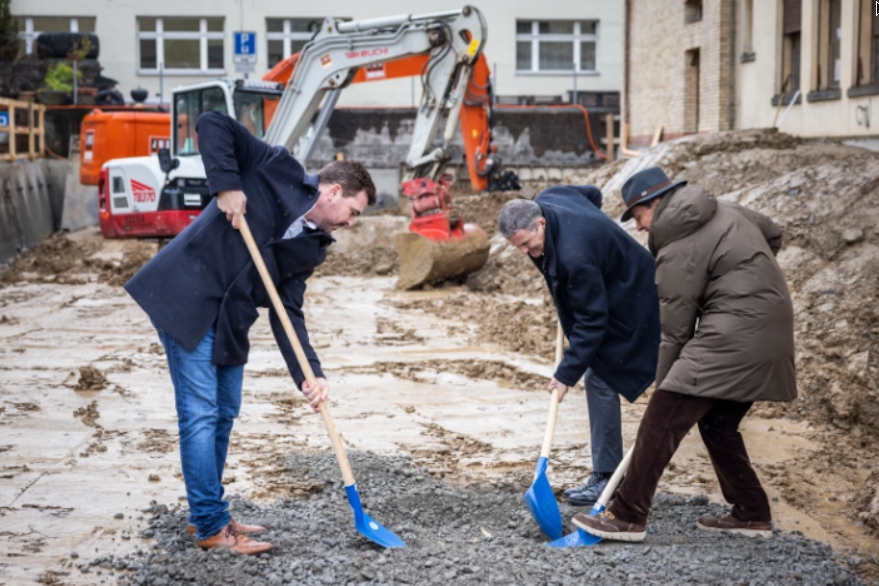Ground-breaking ceremony heralds Theilerhaus transformation

In a festive ceremony, leading figures from politics and the judiciary laid the foundation stone for an ambitious construction project: the comprehensive renovation and remodelling of the Theilerhaus, a building steeped in history in the canton of Zug. Led by the Director of Construction Florian Weber, Mayor André Wicki and Aldo Elsener, President of the Administrative Court, the ground-breaking ceremony marked the official start of the revitalisation of this listed building. In future, the Theilerhaus will house both the Administrative Court and a catering facility, with completion planned for September 2025.
The Theilerhaus, originally built in 1896 by Richard Theiler, an accomplished watchmaker, and the entrepreneur Adelrich Gyr as the site of their “Electrotechnisches Institut Theiler und Cie”, played a central role in Zug’s industrial development. Over the years, the building underwent several changes of ownership and served as the nucleus for Landis & Gyr’s rise to become a globally recognised technology group. The takeover of the site by the Canton of Zug in 1989 paved the way for today’s reorganisation.
A modern justice and catering facility
The ground floor of the Theilerhaus will house a restaurant, which will not only serve as a neighbourhood meeting place, but also provide catering facilities for cantonal employees. The upper floors will be given a new purpose as the seat of the administrative court, with a courtroom on the third floor and the former panelled director’s room on the second floor, which will regain its significance through the use of the presiding judge.
Integration and appreciation of the historical heritage
The redesign of the Theilerhaus is the result of an intensive dialogue with the conservation authorities and aims to preserve the historical substance and architectural identity of the building. The project was carefully planned by the consortium CST Architekten AG and Eggenspieler Architekten AG, both based in Zug, to ensure that the Theilerhaus remains a living testimony to local industrial history and a valuable cultural asset for the people of Zug.